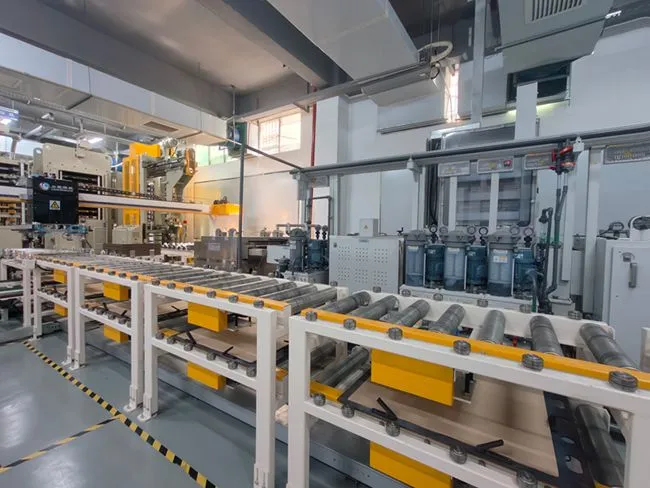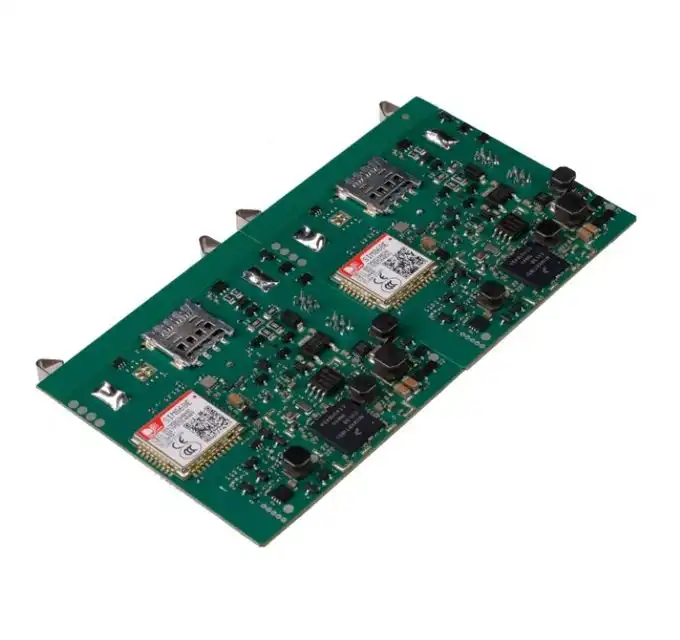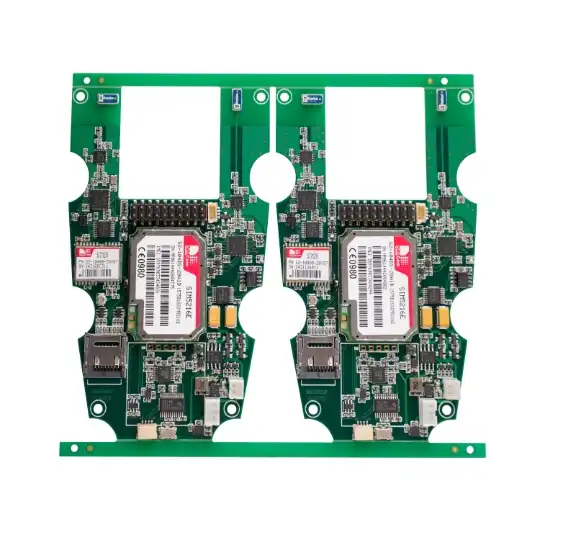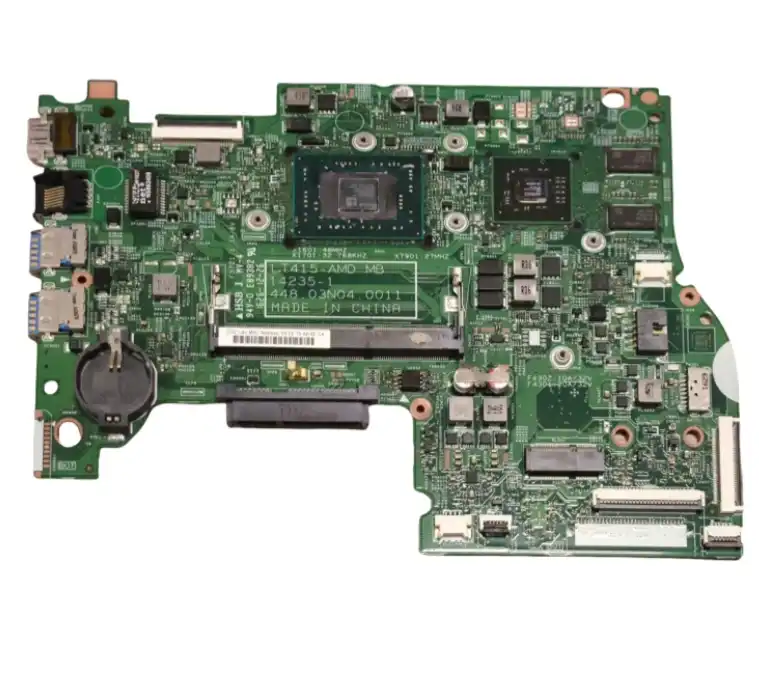How PCBA manufacturing Meets Industry 4.0 Demands?
PCBA manufacturing is evolving rapidly to meet the demands of Industry 4.0, embracing advanced technologies and smart manufacturing processes. This transformation involves the integration of automation, data exchange, and artificial intelligence into production systems. By leveraging IoT sensors, real-time monitoring, and predictive analytics, PCBA manufacturers can optimize production efficiency, enhance quality control, and reduce lead times. These advancements enable greater flexibility, customization, and responsiveness to market demands, positioning PCBA manufacturing at the forefront of the fourth industrial revolution.

The Evolution of PCBA Manufacturing in the Digital Age
The landscape of PCBA (Printed Circuit Board Assembly) manufacturing has undergone a seismic shift in recent years, propelled by the relentless march of technological progress. As we delve into the digital age, traditional manufacturing paradigms are being upended, giving way to more sophisticated, data-driven approaches that align with the principles of Industry 4.0.
At the heart of this evolution lies the concept of smart manufacturing. PCBA production lines are now equipped with an array of sensors and connected devices that continuously gather data on every aspect of the manufacturing process. This real-time data collection enables manufacturers to gain unprecedented insights into their operations, from material flow to machine performance.
One of the most significant advancements in PCBA manufacturing is the implementation of Machine Learning (ML) algorithms. These intelligent systems can analyze vast amounts of production data to identify patterns and anomalies that might escape human observation. By leveraging ML, manufacturers can predict potential issues before they occur, optimize production parameters on the fly, and even suggest improvements to the overall manufacturing process.
Embracing Automation for Enhanced Precision and Efficiency
Automation has become a cornerstone of modern PCBA manufacturing, with robotic systems taking on increasingly complex tasks. Advanced pick-and-place machines can now handle components with microscopic precision, placing them at speeds that far surpass human capabilities. This level of automation not only increases throughput but also significantly reduces the risk of human error, leading to higher quality end products.
Moreover, the integration of Automated Optical Inspection (AOI) systems has revolutionized quality control in PCBA manufacturing. These high-resolution cameras and sophisticated image processing algorithms can detect defects that would be invisible to the naked eye, ensuring that only flawless boards make it to the end user.
Digital Twin Technology: A Game-Changer for PCBA Design and Production
The concept of digital twins has found fertile ground in PCBA manufacturing. By creating a virtual replica of the physical production line, manufacturers can simulate and optimize their processes in a risk-free digital environment. This technology allows for rapid prototyping, virtual testing of new production strategies, and even predictive maintenance of equipment.
Digital twins also facilitate seamless collaboration between design and manufacturing teams. Engineers can now visualize how their designs will perform in the actual production environment, leading to more manufacturable products and shorter time-to-market cycles.
Leveraging Big Data and Analytics in PCBA Production
The proliferation of sensors and connected devices in PCBA manufacturing has led to an explosion of data. However, the true value lies not in the data itself, but in the insights that can be extracted from it. Advanced analytics platforms are now being employed to sift through terabytes of production data, uncovering hidden inefficiencies and opportunities for improvement.
Predictive analytics, in particular, has emerged as a powerful tool in PCBA manufacturing. By analyzing historical data and current trends, these systems can forecast potential equipment failures, supply chain disruptions, or quality issues. This foresight allows manufacturers to take proactive measures, minimizing downtime and maintaining consistent product quality.
Real-Time Monitoring and Adaptive Manufacturing
The implementation of real-time monitoring systems has ushered in a new era of adaptive manufacturing in the PCBA industry. These systems provide a continuous stream of data on key performance indicators, allowing managers to make informed decisions on the spot. For instance, if a particular component is running low, the system can automatically adjust production schedules or trigger reordering processes to prevent bottlenecks.
Furthermore, adaptive manufacturing systems can dynamically optimize production parameters based on real-time feedback. If environmental conditions change or if certain components are behaving differently than expected, the system can automatically adjust settings to maintain optimal performance and quality.
Supply Chain Integration and Just-in-Time Manufacturing
Industry 4.0 principles have also transformed supply chain management in PCBA manufacturing. By integrating suppliers into their digital ecosystem, manufacturers can achieve unprecedented levels of transparency and coordination. Real-time inventory tracking and demand forecasting enable just-in-time manufacturing, reducing storage costs and minimizing waste.
This level of integration also facilitates rapid response to market changes. If demand for a particular product suddenly spikes, the entire supply chain can be alerted and adjusted in real-time, ensuring that production can scale up quickly to meet the new demand.
Ensuring Quality and Compliance in the Age of Smart Manufacturing
As PCBA manufacturing becomes increasingly automated and data-driven, ensuring product quality and regulatory compliance has taken on new dimensions. Industry 4.0 technologies offer novel approaches to these critical aspects of production, enabling manufacturers to maintain high standards while increasing efficiency.
Artificial Intelligence (AI) is playing a pivotal role in quality assurance for PCBA manufacturing. AI-powered inspection systems can learn from past defects and continuously improve their ability to detect even the most subtle issues. These systems can analyze X-ray images, thermal scans, and electrical test results with a level of precision and consistency that surpasses human capabilities.
Blockchain for Traceability and Compliance
Blockchain technology is emerging as a powerful tool for ensuring traceability and compliance in PCBA manufacturing. By creating an immutable record of every step in the production process, from component sourcing to final assembly, blockchain systems provide an unprecedented level of transparency and accountability.
This technology is particularly valuable in industries with stringent regulatory requirements, such as aerospace and medical devices. With blockchain, manufacturers can provide irrefutable proof of compliance with quality standards and regulatory guidelines, simplifying audits and enhancing customer trust.
Cybersecurity in Connected Manufacturing Environments
As PCBA manufacturing becomes increasingly connected and data-driven, cybersecurity has become a critical concern. Industry 4.0 technologies, while offering numerous benefits, also create new vulnerabilities that must be addressed. Manufacturers are now implementing robust cybersecurity measures to protect their intellectual property, prevent unauthorized access to production systems, and ensure the integrity of their data.
Advanced encryption techniques, secure cloud storage, and regular security audits are becoming standard practices in smart PCBA manufacturing facilities. Moreover, AI-powered threat detection systems are being employed to identify and neutralize potential security breaches in real-time, safeguarding the entire manufacturing ecosystem.
Conclusion
The integration of Industry 4.0 technologies into PCBA manufacturing represents a paradigm shift in how electronic components are produced. By embracing automation, big data analytics, and smart manufacturing principles, PCBA manufacturers are achieving unprecedented levels of efficiency, quality, and flexibility. As these technologies continue to evolve, we can expect to see even more innovative approaches to PCBA production, driving the electronics industry forward into a new era of manufacturing excellence.
FAQ
How does Industry 4.0 improve PCBA manufacturing efficiency?
Industry 4.0 enhances PCBA manufacturing efficiency through automation, real-time monitoring, and data analytics, optimizing processes and reducing downtime.
What role does AI play in PCBA quality control?
AI in PCBA manufacturing enables advanced defect detection, predictive maintenance, and continuous process improvement, significantly enhancing quality control.
How does blockchain technology benefit PCBA manufacturing?
Blockchain provides transparent and immutable traceability in PCBA manufacturing, ensuring compliance and enhancing trust throughout the supply chain.
Expert PCBA Manufacturing Solutions | Ring PCB
At Ring PCB, we leverage cutting-edge Industry 4.0 technologies to deliver superior PCBA manufacturing solutions. Our state-of-the-art factory combines high-density stack-up capabilities, smart manufacturing processes, and rigorous quality control to meet the most demanding industry standards. With our integrated PCBA services and full supply chain control, we offer unparalleled efficiency and reliability. Experience the future of PCBA manufacturing with Ring PCB. Contact us at [email protected] to discuss your project needs and discover how our expertise can drive your success.
References
1. Johnson, A. (2023). "The Impact of Industry 4.0 on PCBA Manufacturing Processes." Journal of Advanced Electronics Manufacturing, 15(2), 78-92.
2. Smith, B., & Davis, C. (2022). "Artificial Intelligence in Quality Control for PCBA Production." International Conference on Smart Manufacturing Technologies, 45-59.
3. Lee, S., et al. (2023). "Blockchain Applications in Electronics Supply Chain Management." IEEE Transactions on Industrial Informatics, 19(4), 2201-2215.
4. Zhang, Y. (2022). "Digital Twin Technology: Revolutionizing PCBA Design and Manufacturing." Advanced Manufacturing Systems Quarterly, 7(3), 112-128.
5. Brown, R., & Wilson, T. (2023). "Cybersecurity Challenges and Solutions in Industry 4.0 PCBA Manufacturing." Journal of Industrial Cybersecurity, 11(1), 34-49.

Welcome to Ring PCB! Share your inquiry, and receive a tailored quotation!

Ring PCB, your trusted partner for PCB & PCBA Full Turnkey Solutions



